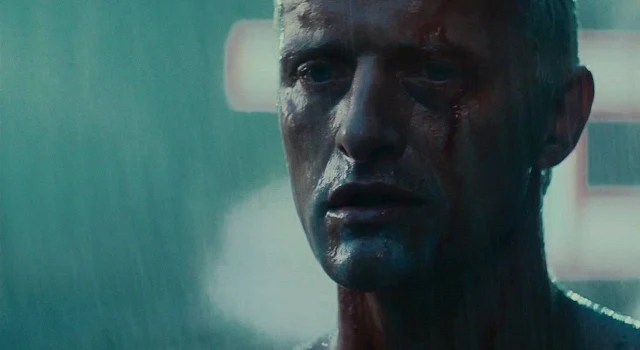Roy Batty's decision to save Deckard's life is a pivotal moment in the film, not only because it highlights the film's central themes but also because it challenges our own preconceived notions of what it means to be human. Throughout the film, the audience is confronted with the question of what it means to be human, with the replicants serving as a kind of mirror for the human characters.
The replicants are physically identical to humans, and yet they are treated as objects, created to perform specific tasks and then discarded when they are no longer needed. This treatment is what drives the replicants to seek out a way to extend their limited lifespan and avoid the fate of being discarded like a used piece of machinery.
However, in the final scene of the film, Batty's actions demonstrate that replicants are capable of more than just fulfilling their intended purpose. His decision to save Deckard's life is an act of empathy and compassion, traits that we often associate with humanity. This moment challenges the notion that replicants are just machines, devoid of emotion or the capacity to care about others.
Batty's act of compassion also highlights the idea of what it means to be truly alive. In many ways, Batty's situation is not dissimilar to that of humans who face their own mortality. Throughout the film, Batty is aware of his limited lifespan and the fact that he is not truly alive in the same way that humans are. His decision to save Deckard's life can be seen as a rejection of this fate and a desire to transcend the limitations imposed upon him by his creators.
The 'tears in the rain' monologue succinctly reflects these themes, marking it as one of the greatest 'bad guy' monologues in film history.
Furthermore, Batty's actions can also be seen as an act of rebellion against the societal norms that dictate that replicants are inferior to humans. By demonstrating compassion and empathy towards a human, Batty challenges the notion that replicants are incapable of such emotions. In a way, Batty's actions are a call for recognition, not just for himself, but for all replicants.
By demonstrating empathy and compassion towards a human, Batty proves that replicants are more than just machines and possess the same traits that we often associate with humanity. His actions also highlight the idea of what it means to be truly alive and challenge the societal norms that dictate that replicants are inferior to humans.
Furthermore, Batty's actions can also be seen as an act of rebellion against the societal norms that dictate that replicants are inferior to humans. By demonstrating compassion and empathy towards a human, Batty challenges the notion that replicants are incapable of such emotions. In a way, Batty's actions are a call for recognition, not just for himself, but for all replicants.
By demonstrating empathy and compassion towards a human, Batty proves that replicants are more than just machines and possess the same traits that we often associate with humanity. His actions also highlight the idea of what it means to be truly alive and challenge the societal norms that dictate that replicants are inferior to humans.
















